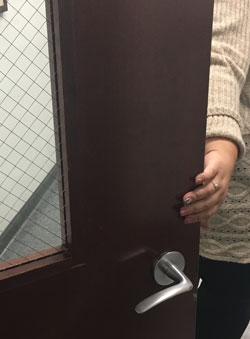 Ah yes, holiday season. The time of year that families all come together, in their itchy wool-made sweaters that their elders force them to wear, expressing thanks to families, and saying prayers for what they have. Immediately afterward, however, it’s every man for himself, scavenger hunting for the best deals online and in malls. Back in the 1850’s, if your father came home alive and healthy with a sack of salt you thank your stars for such a blessing; but in this modern age, if you buy your child the newest cellphone and get the wrong case color, you won’t hear the end of it.
Ah yes, holiday season. The time of year that families all come together, in their itchy wool-made sweaters that their elders force them to wear, expressing thanks to families, and saying prayers for what they have. Immediately afterward, however, it’s every man for himself, scavenger hunting for the best deals online and in malls. Back in the 1850’s, if your father came home alive and healthy with a sack of salt you thank your stars for such a blessing; but in this modern age, if you buy your child the newest cellphone and get the wrong case color, you won’t hear the end of it.
As cliché as it gets, the apple does not fall far from the tree. The Observer did a survey asking, “Do you think children today are more polite, less polite, or the same as when you were growing up?” and they responded saying, “the 70 parents that responded, three-quarters answered that today’s children and adults are less polite than when they, themselves, were growing up.”
Aside from parenting and guidance, another dilemma that causes a rift of sincerity and hospitality is the advancement of technology. There’s texting, tweeting, posting, blogging and many other types of sharing. These texting sub-units urge the predominately young generation to express their opinions with brief descriptions and lack of literary composure.
What’s the problem with that? These electronic devices lead to more insensitive face-to-face interactions, even with relatives on Thanksgiving Day due to the lack of practical communication skills. In this generation, people feel more comfortable ordering pizza online rather than on the phone due to the fear of being ridiculed for mispronouncing the word ‘pepperoni.’
Brianne Orzepowski, a freshman nursing student, stated, “In my opinion, I believe that good manners are neglected, especially during this time of year. I blame this partially on materialism. Many value what is tangible more than what is truly significant in life. This has caused many to grow selfish and to think of themselves before others.”
“Additionally, individuals have come to expect something in return for a good deed. It does not take much to hold the door open for the next person or to give a simple smile or ‘hello’ to an acquaintance,” she continued.
Nick Vail-Stein, freshman software engineering student, said, “I’d say that manners are still taught and acted on, but maybe not as high of a degree as it used to. It’s true that not everyone is the politest, especially with huge deals and stress to get products, but it’s important sometimes to look past the bad behavior that is so obvious and look at all the kind people.”
Vail-Stein continued, “Those who hold doors, who volunteer at soup kitchens, and work overtime so others don’t have to still exist. I don’t think the proportions of good to bad mannered actions have gotten any worse or better, but media is often pessimistic on such manners showing us black Friday mobs instead of volunteer Santa Clauses.”
Frank Cipriani, Instructor of World Languages and Cultures, who is renowned on the campus for his refined mannerisms, stated, “Good manners are still taught. Life has pushed back against these good manners in numerous ways. Pop culture is driven by consumerism. Consumerism is driven by dissatisfaction, so many shows teach children to disrespect parents, showing them how to push back against them to pressure them to buy material goods.”
Technology is fantastic, there’s no question or objection to that, but when it has clear negative effects on the younger age groups something must be done. Social media alone has been made quantifiable. The number of likes, retweets, comments, and follower counts makes social media seem like a numbers game. You may now be asking: “How does this affect our mannerisms?” To achieve these numbers, people display a fake persona to make themselves seem more interesting, but at the end of the day people are consumed with image on social media then how they display themselves to the real world.
Cancelling out technology isn’t the answer, but as a community if we can spread the importance of people and communication skills, then there may be hope yet. As a unit, let’s strive to create a domino effect, not even just for ourselves, but for the better of the younger generations you want to inspire.
PHOTO TAKEN by Lauren Niesz


